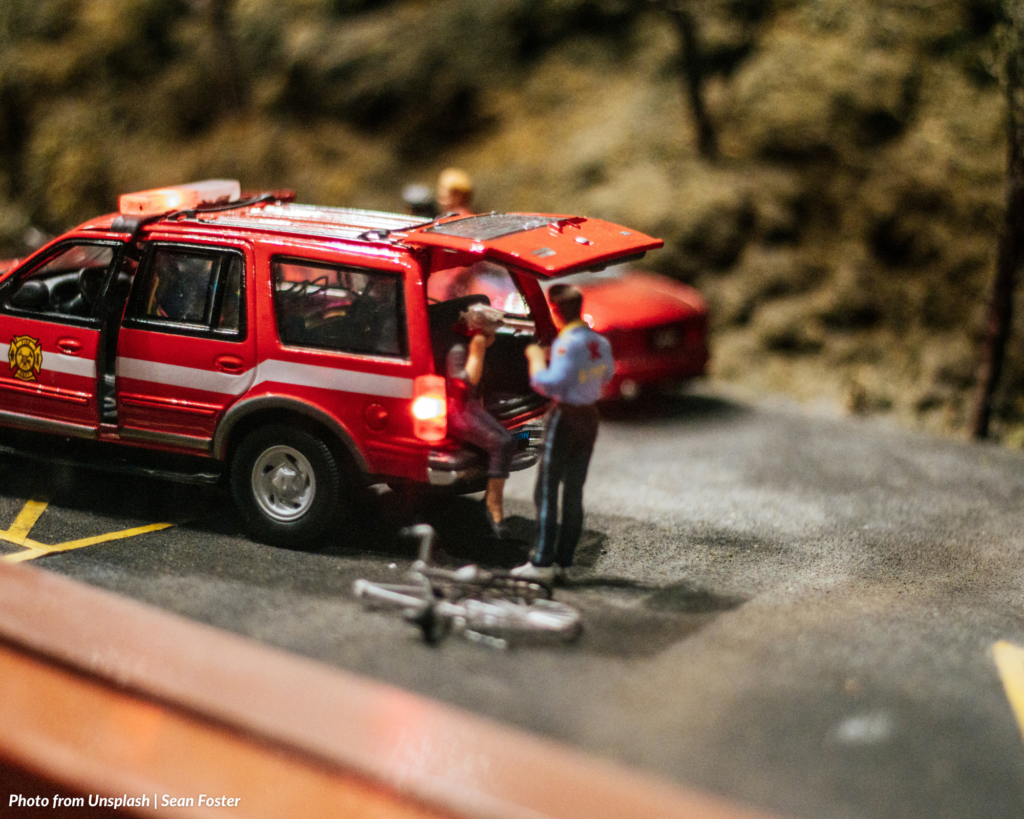
Photo from Unsplash | Sean Foster
The following post does not create a lawyer-client relationship between Alburo Alburo and Associates Law Offices (or any of its lawyers) and the reader. It is still best for you to engage the services of a lawyer or you may directly contact and consult Alburo Alburo and Associates Law Offices to address your specific legal concerns, if there is any.
Also, the matters contained in the following were written in accordance with the law, rules, and jurisprudence prevailing at the time of writing and posting, and do not include any future developments on the subject matter under discussion.
AT A GLANCE:
In case of death of or injuries to passengers, common carriers are presumed to have been at fault or to have acted negligently, unless they prove that they observed extraordinary diligence as prescribed in articles 1733 and 1755. (Article 1756, New Civil Code of the Philippines)
When we hop on a bus, train, or plane, we trust that we’ll reach our destination safely. But what happens if something goes wrong, and a passenger is injured or worse? This is where the concept of common carrier liability comes into play.
Extraordinary Diligence: The Legal Standard
According to the law, common carriers must exercise what’s called “extraordinary diligence” in ensuring the safety of their passengers. This means they have to be incredibly vigilant and take all necessary precautions to keep passengers safe.
The law says:
Art. 1733. Common carriers, from the nature of their business and for reasons of public policy, are bound to observe extraordinary diligence in the vigilance over the goods and for the safety of the passengers transported by them, according to all the circumstances of each case.
Art. 1755. A common carrier is bound to carry the passengers safely as far as human care and foresight can provide, using the utmost diligence of very cautious persons, with a due regard for all the circumstances.
If a passenger is injured or killed while under the care of a common carrier, the law automatically presumes that the carrier was at fault or acted negligently. In simpler terms, the carrier is initially assumed to be responsible unless proven otherwise.
However, this does not mean that common carriers are automatically on the hook for any mishaps. The law acknowledges that accidents can happen despite the carrier’s best efforts. So, while they’re expected to do everything humanly possible to ensure safety, they’re not considered insurance against all possible risks.
Jurisprudence says:
While the law requires the highest degree of diligence from common carriers in the safe transport of their passengers and creates a presumption of negligence against them, it does not, however, make the carrier an insurer of the absolute safety of its passengers.
Article 1755 of the Civil Code qualifies the duty of extraordinary care, vigilance, and precaution in the carriage of passengers by common carriers to only such as human care and foresight can provide. What constitutes compliance with said duty is adjudged with due regard to all the circumstances.
Article 1756 of the Civil Code, in creating a presumption of fault or negligence on the part of the common carrier when its passenger is injured, merely relieves the latter, for the time being, from introducing evidence to fasten the negligence on the former, because the presumption stands in the place of evidence. Being a mere presumption, however, the same is rebuttable by proof that the common carrier had exercised extraordinary diligence as required by law in the performance of its contractual obligation, or that the injury suffered by the passenger was solely due to a fortuitous event. (G.V. Florida Transport, Inc. vs. Heirs of Romeo Battung, G.R. No. 208802, October 14, 2015)
If a carrier wants to dispute the presumption of fault, they have to show evidence that they took extraordinary care as required by law, or that the injury was due to an unforeseeable event beyond their control (like a natural disaster). This shifts the burden of proof back to the carrier to demonstrate they did everything they could to fulfill their duty.
In the foregoing case decided by the Supreme Court, the court emphasized that while the law creates a presumption of fault against common carriers, this presumption can be challenged with evidence showing the carrier acted diligently or that the injury was truly accidental.
In essence, common carriers have a big responsibility on their shoulders when it comes to passenger safety. They’re expected to go above and beyond to ensure a smooth and secure journey. But even with this legal duty, accidents can still happen, and carriers have the chance to defend themselves against claims of negligence.
Related Article/s:
Diligence Required of Common Carriers
Alburo Alburo and Associates Law Offices specializes in business law and labor law consulting. For inquiries regarding taxation and taxpayer’s remedies, you may reach us at info@alburolaw.com, or dial us at (02)7745-4391/0917-5772207.
All rights reserved.


